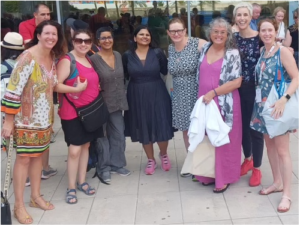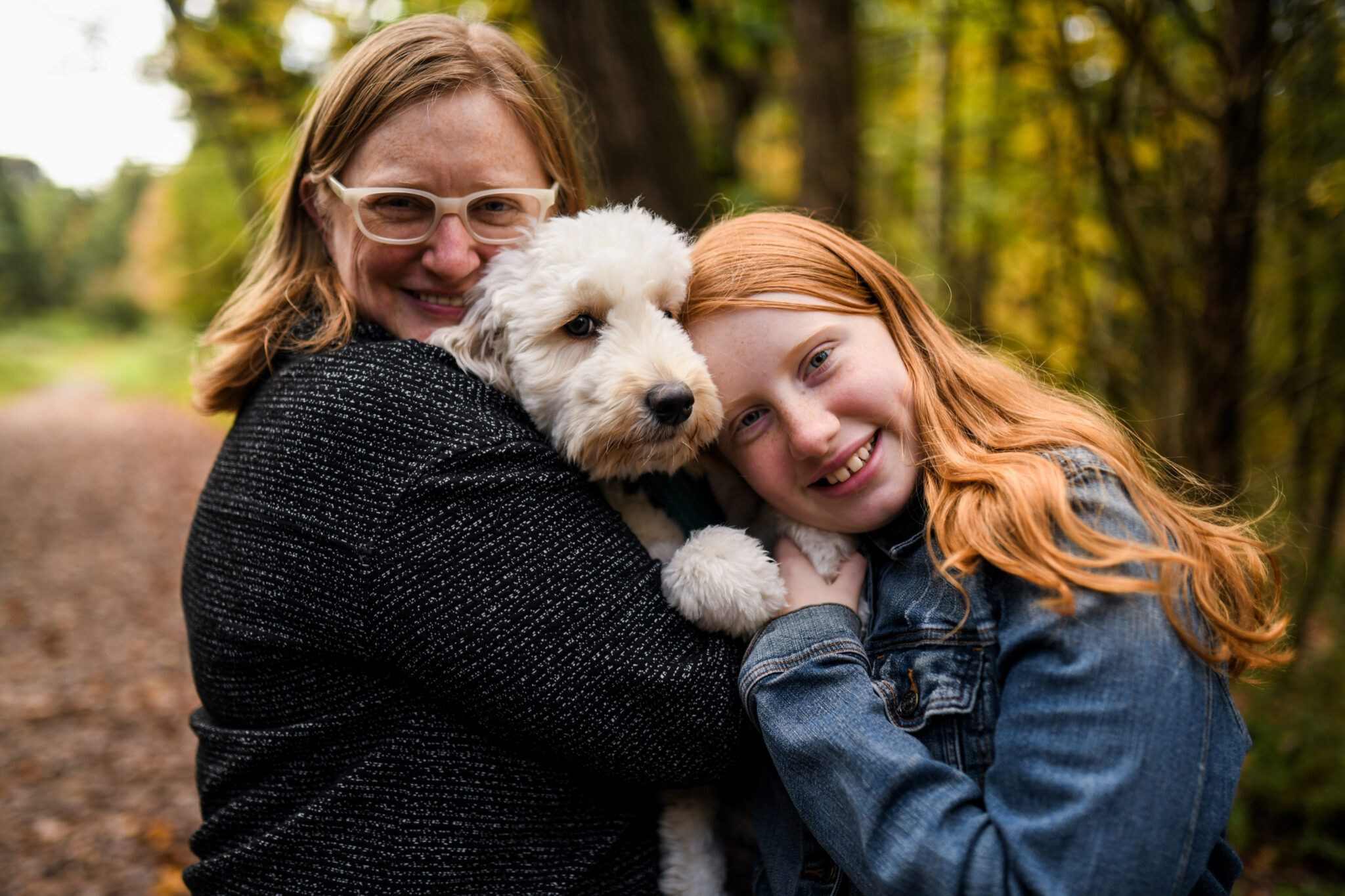Photo credit to Rachel Liu
An interview with Dr. Becca Miller, Associate Professor at Yale University, clinical psychologist and Parkinson’s advocate on February 24, 2024 by George Ackerman, Ph.D, J.D.

Biography
Becca Miller is an Associate Professor at Yale University, a clinical psychologist and Parkinson’s advocate living and working in New Haven, CT, USA. She was diagnosed at age 39 when her daughter was 9 months old after having symptoms of Parkinson’s for about 12 years prior to that. Her work with the PD community includes working with the Parkinson’s Foundation with a focus on improving hospital care for people with PD, continuing education for professionals, and serving on the Michael J. Fox Foundation’s Patient Council. She has also been involved with the World Parkinson’s Congress since attending her first congress in Montreal in 2013, the year she was diagnosed.
Please tell me a little about your background.
I grew up in New Jersey and then lived in New York City where I went to Barnard College and did my graduate work at Long Island University Brooklyn. I came to CT for the final year of my psychology PhD and ended up staying – mostly because of the pizza here. I also have a history of mental illness and use that in my work at the community mental health center where I work with people with serious mental illness. Since my diagnosis I have felt strongly about sharing my story with others and being involved in clinical trials to help move us towards better treatments and a cure.
What is your passion and how did you get involved in Parkinson’s awareness and hope for a cure?
When I was diagnosed, the neurologist told me, “Take charge of your disease; don’t let it take charge of you”. He also encouraged me to go to the WPC in Montreal of that year. It was such a transformative experience, seeing people with PD who were so accomplished both before and after their diagnosis. It inspired me to want to give back. As a psychologist, I knew something about the importance of research and wanted to do anything and everything I could to be involved. I also feel passionately about having women better represented in the PD research and advocating for more research around hormonal impacts on PD in women, as well as parenting with PD and living with Young Onset PD.
What events do you participate in?
I’ve had a team in the Unity Walk for about 7 years -Team Snail. It’s a great chance to get friends together and to raise money and awareness for PD. I’ve spoken at the WPC several times, and have done several podcasts and webinars.
How does this also assist the caregivers?
I’m single and don’t have a carepartner, but I think being involved as a team in these kinds of events is important. Also making room for and time for things not related to Parkinson’s.
How can someone get in touch? What is your website?
My website is www.rebeccamillerphd.com
How can others also become advocates for awareness?
There are so many different opportunities to get involved; finding one that fits for you and draws upon your strengths and talents is important.
In your opinion what is the key to effective advocacy?
Persistence and relationships. Advocacy is a long game, and it is important to find your own sources of support along the way.
How can we better fundraise to support a cure for Parkinson’s?
Most of the big money for research into medical conditions comes through our federal government in the US – I think we need to advocate for more research dollars there.
What other activities do you undertake to help improve and support your daily living Eg exercise and alternative remedies?
I’m working to incorporate exercise into my daily life. I hate exercise. And of course the disease I get, exercise is the most important thing! I try and find things I like to do, like walking my dog. My daughter and I just started taking Taekwando classes which is lots of fun and something we can do together. I try and stay in touch with friends both with and without PD; being connected is so important. I also use principles from Acceptance and Commitment Therapy (ACT); focusing on my values and how to keep working towards making those a reality in my life. And lots and lots of humor.
Why should people who don’t have Parkinson’s care about this?
As the 2nd fastest growing neurological disease and one that seems to be caused by environmental factors, it won’t be long before everyone will know someone or will themselves be affected.
Have you had any family members or relatives affected by Parkinson’s disease?
No – it’s just me. I have no idea where my PD came from, and so far, I don’t have any genetic markers.
If you had one song that would tell us more about you or represent your life which song would it be?
Love Yourself by Sufjan Stevens.
If you had one final statement or quote you could leave for the Parkinson’s community, what would it be?
Keep doing what you can – you are stronger than you ever imagined.

